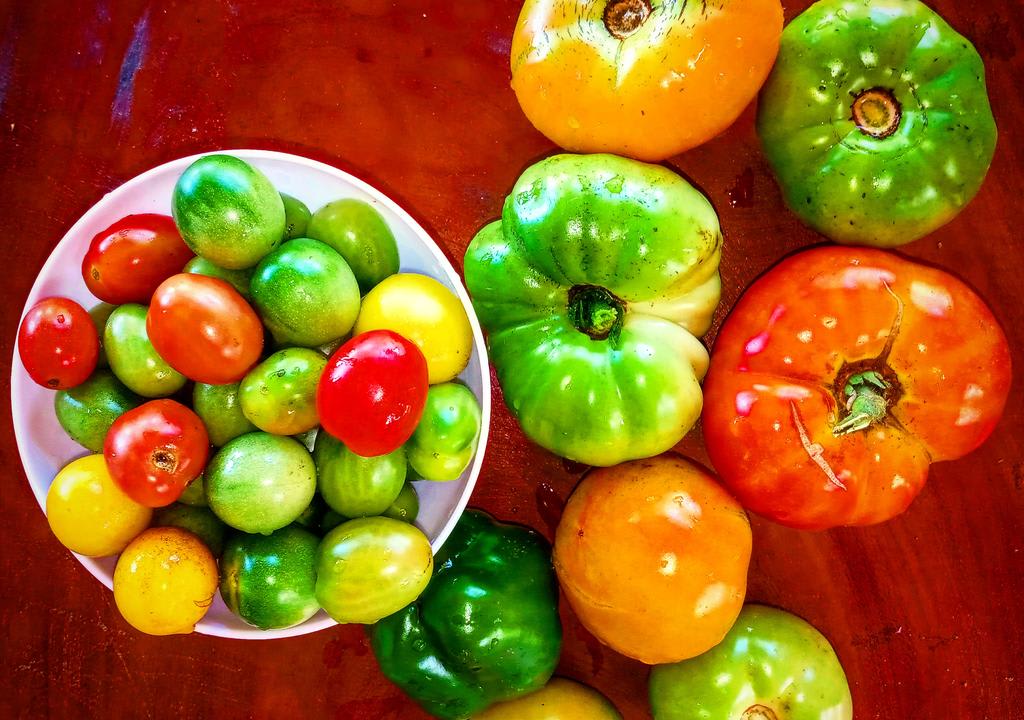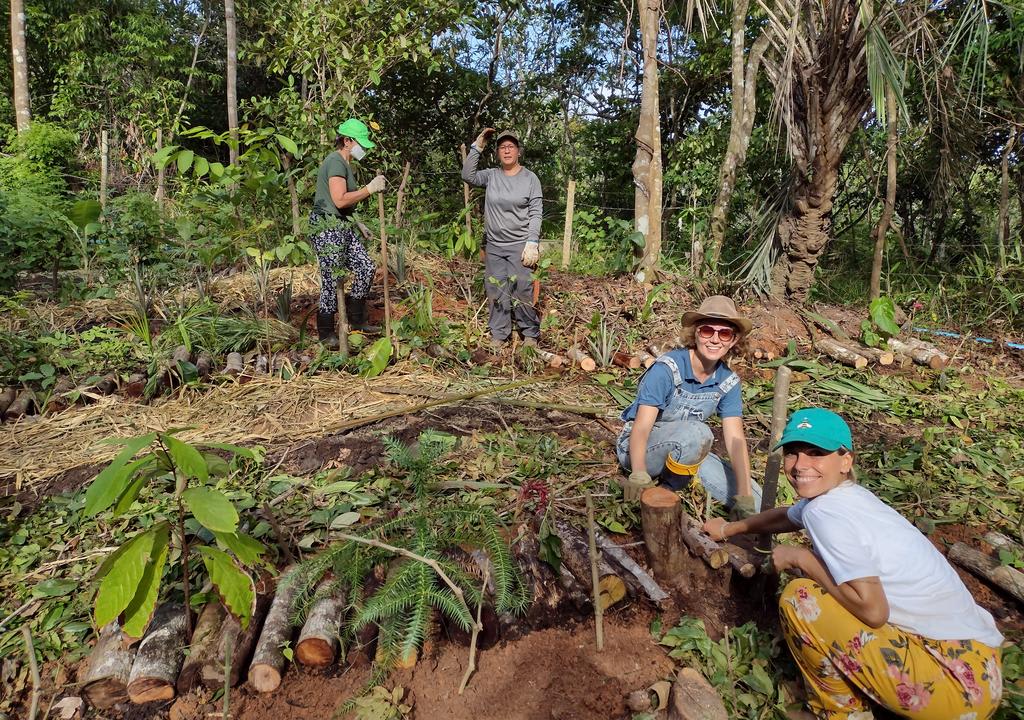
- How about winning a flight ticket worth up to US$500?
- Become a member by January 31st and get a chance to win!
Explore the journey of organic food from farm to plate and discover the sustainable practices behind it. In addition, learn how you can contribute by volunteering on organic farms with Worldpackers!
4min

The demand for organic food is on the rise as more and more people pay attention to what they eat. However, have you ever stopped to think about the fascinating journey organic food takes from the farm to your plate? In this article, we will explore the specific process that organic food undergoes and how it differs from conventionally grown food.
The farm-to-plate concept addresses several significant issues, ranging from economic concerns to environmental ones. It promotes the use of locally sourced, seasonal, organic, and freshly produced foods while educating consumers about the various stages of the food cycle. It also highlights how our dietary choices impact society, the environment, and the economy.
Moreover, this concept reconnects consumers with the origins of the ingredients in their meals. In today's world, food is often imported and exported from distant locations, which disconnects customers from their food providers. Many urban dwellers rarely have the opportunity to come across local farms and farmers as they can't easily venture into the countryside.
Farm-to-plate emphasizes the intimate connections and interdependence that exist among food producers, farmers, and consumers. Knowing where our food comes from helps us appreciate it and the farmers who nurtured the crops.

Organic food benefits everyone as it is produced using farming techniques that prioritize the health of the soil, plants, animals, and workers. Organic farmers employ practices such as crop rotation, cover crops, and composting to enhance soil health. They use natural alternatives instead of synthetic pesticides and fertilizers. This commitment to ecosystem health enables organic farmers to produce nutrient-rich crops free from harmful chemicals.
Once the organic crops reach their harvest stage, skilled farmers carefully handpick them. These crops are then transported to processing facilities where they undergo thorough cleaning and packaging. During the processing stage, strict adherence to organic standards ensures that organic food is free from non-organic ingredients, additives, irradiation, or genetic modification.
Waste minimization and ethical waste management are highly valued in organic farming and food production. Organic farmers employ techniques such as composting to reduce waste and replenish the soil with essential nutrients. Similarly, organic food businesses prioritize environmentally friendly packaging options and work to prevent food waste by donating unsold products to charities and food banks. These actions demonstrate their commitment to resource conservation and sustainability.

Once the processing stage is complete, organic food is ready for delivery to stores and customers. Many organic food companies collaborate with local farmers and co-ops to ensure their products are distributed directly from the farm to the consumers. This direct approach cuts out intermediaries, providing consumers with fresher organic produce while supporting nearby farms.
Once people have access to organic food, they can prepare it in various ways to add diversity to their meals. Organic food can be easily incorporated into any diet, whether it's home-cooked meals or restaurant dishes. It is an excellent choice for those seeking healthier alternatives and wishing to avoid the negative health effects associated with artificial chemicals, as organic food is free from toxic substances.

Shopping for organic products is made easy by numerous platforms that offer a wide selection of organic goods delivered to your doorstep. If you're looking for a reliable supplier of organic products, consider Two Brothers India Shop. They offer a diverse range of organic products, including millets, cow ghee, buffalo ghee, jaggery, and more. No matter where you are in the world, you can benefit from sustainably and organically grown ingredients.
If you're passionate about organic farming and want to immerse yourself in this sustainable food journey, consider volunteering with Worldpackers.
Worldpackers offers unique opportunities to work and learn on organic farms around the world. Through the volunteer programs, you can gain hands-on experience in organic farming practices, contribute to local communities, and deepen your understanding of the farm-to-plate process.
>> Join a sustainable farm in Alaska for a rewarding volunteer experience
>> Help a family farm with organic production in Chile
>> Learn about sustainability and connect with nature in Brazil

Understanding the origins of our food is crucial for building a sustainable future. By choosing organic produce and supporting local farmers, we can reduce our carbon footprint and contribute to healthier ecosystems.
The benefits of organic food extend beyond personal health; they also support the livelihoods of small-scale farmers who employ traditional farming methods.
As consumers, it is our responsibility to be informed about the origins of our food and make conscious decisions that benefit both ourselves and the environment. Let's take a step towards sustainability by opting for a sustainable plate filled with organic, locally sourced ingredients.
Join the Worldpackers community and embark on a fulfilling volunteering experience on organic farms today!
Write here your questions and greetings to the author
Zarina
Jul 04, 2023
Hello
jamie
Aug 28, 2023
In the ever-evolving landscape of meal kit delivery services, Green Chef stands out as a remarkable option that not only brings convenience to your kitchen but also prides itself on providing certified organic ingredients. In this comprehensive review, we delve into the various aspects of Green Chef to help you determine whether this certified organic meal kit is truly worth the investment. https://expert-pick.com/food-drink/green-chef-review/